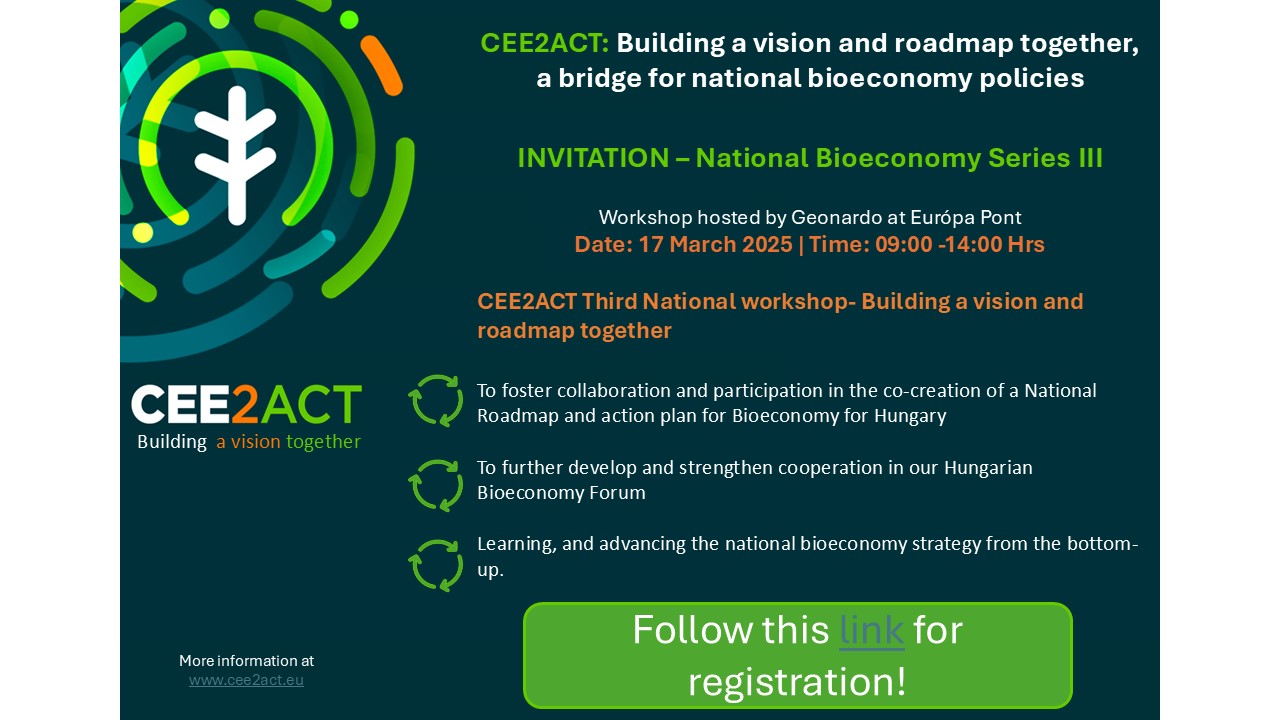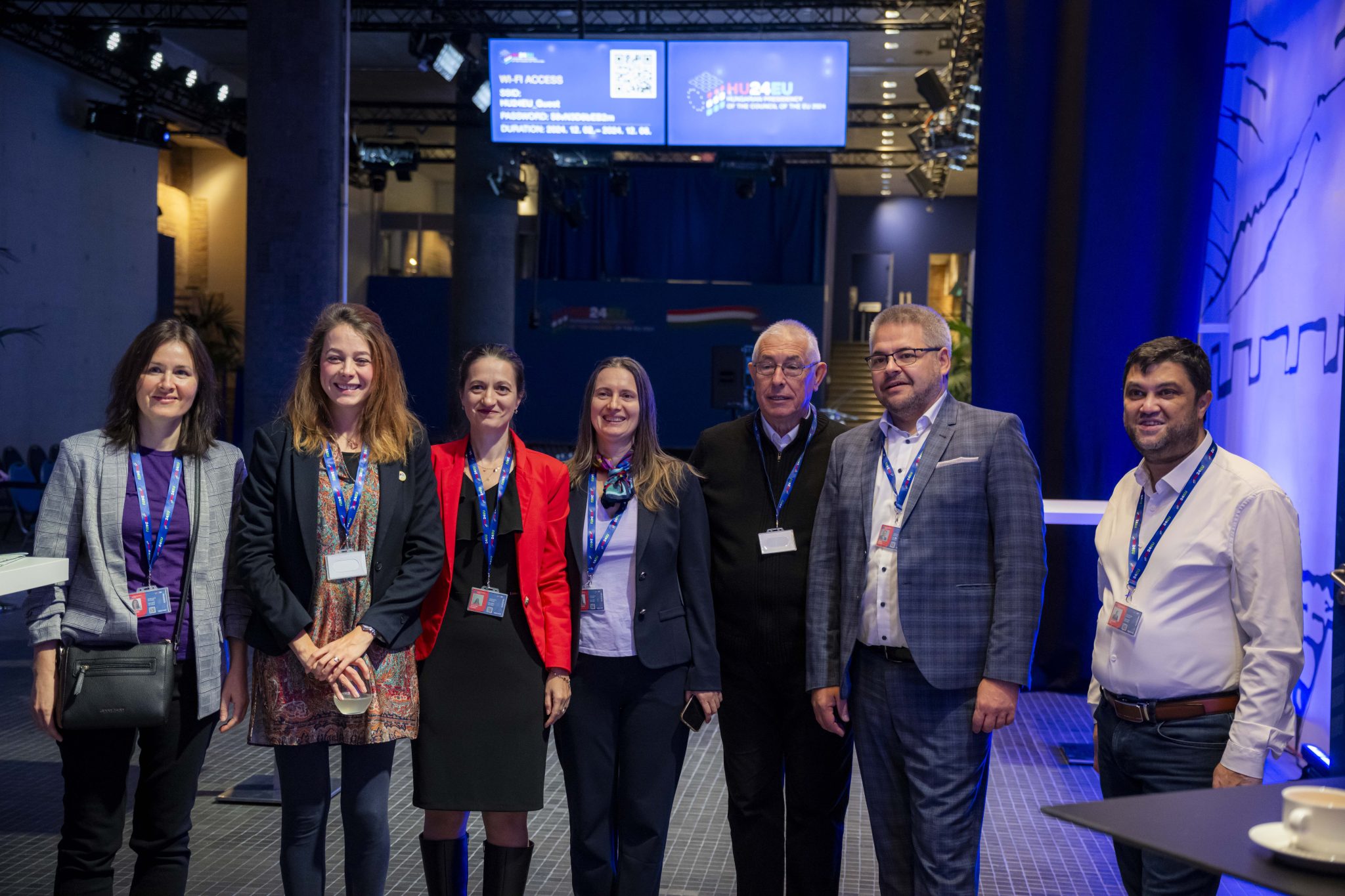On 17 October CEE2ACT participated in the SCALEUp project online training session
Since September 2023, the SCALEUP project has actively organized training sessions, to promote sustainable use of biological resources. They offer 21 free online trainings focusing on the bioeconomy. All sessions are available in English, with AI-powered translations for local languages. Training materials are available on our website for past trainings.

On 17 October, the online training session was focused on Digital Innovation Hubs: A game-changer for leveraging the circular bioeconomy potential 38 participants attended this session. GEO was invited to present the work done in the project connected to the four CEE2ACT e-solutions for sustainable governance and green transition. Among the other speakers, General Coordinator of BioHubCat: el Hub de la Bioeconomia de Catalunya and DIHAFcat, bringing expertise in agronomy, food science, technology, and engineering to discuss the growth of these innovation hubs. Innovate UK, specializing in circular economy and resource efficiency. He'll share his knowledge on managing innovation networks and funding guidance in bioplastics and Deputy Head of the Department of Forest Biomaterials and Technology at the Swedish University of Agricultural Sciences (SLU), focusing on enhancing the forestry work environment and actively involved in Digital Impact North.
The SCALEUP project supports regional multi-actor partnerships, consisting of private businesses, governments and policymakers, civil society organisations, and researchers in identifying and scaling-up innovative and sustainable bio-based value chains that build on regional resources. The sustainability of bio-based innovations is a critical component, which needs to be explored in the attempt to mainstream bio-based solutions in European rural areas. The transition towards sustainable, regenerative, inclusive and fair regional bioeconomies requires a comprehensive, and at the same time, functional framework. This framework should link bio-based solutions to rural development goals and principles of sustainable development, enabling rural communities to identify, compare and implement alternative bio-based development pathways.



